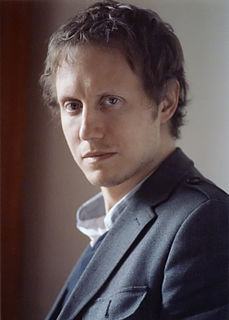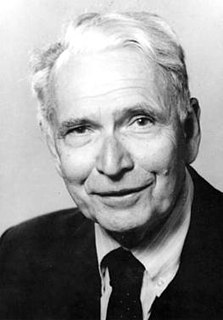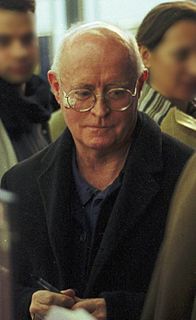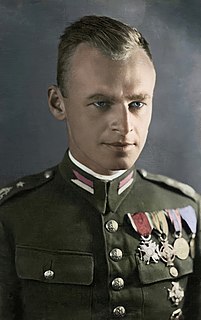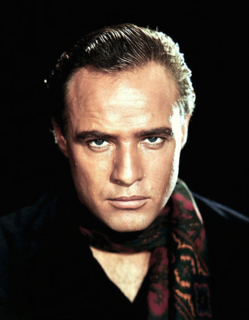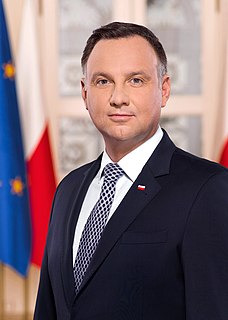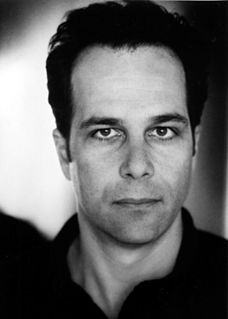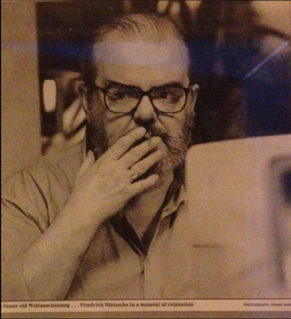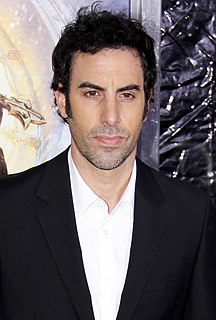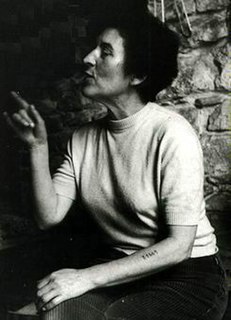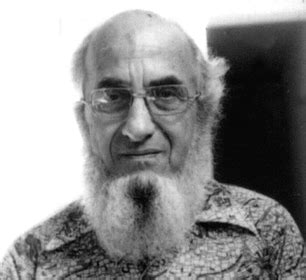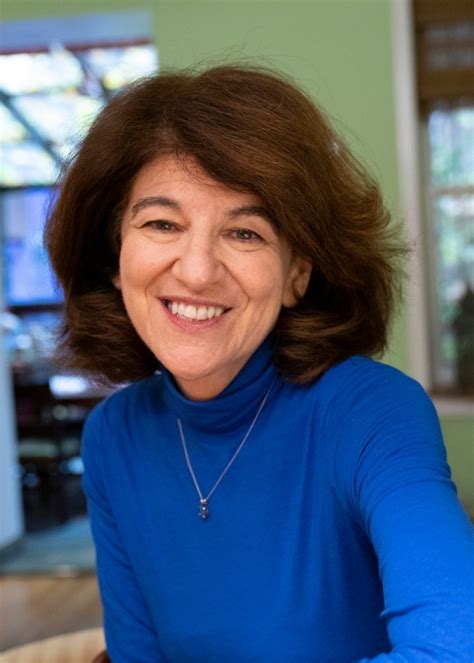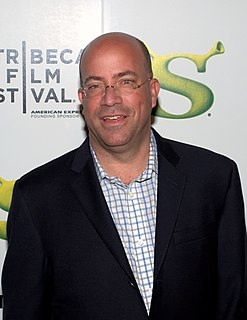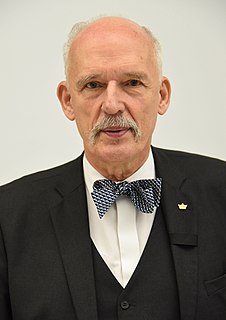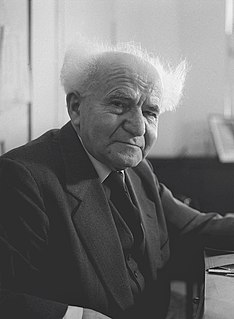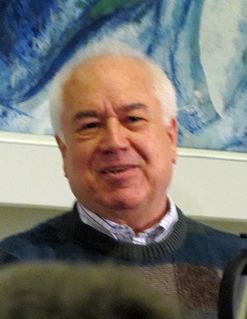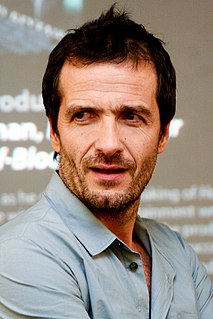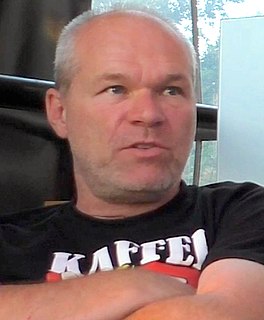Top 128 Auschwitz Quotes & Sayings - Page 2
Explore popular Auschwitz quotes.
Last updated on December 18, 2024.
The American and the British armies liberated camps, there wasn't a single order of the day: Let's go and liberate the camp. They stumbled upon the camps. Same thing with the Russians, I asked the Colonel who liberated Auschwitz, they didn't, there wasn't a priority. But I feel that that was a mistake, it was a sin because they could have saved so many people and they didn't.
Money is like fire, an element as little troubled by moralizing as earth, air and water. Men can employ it as a tool or they can dance around it as if it were the incarnation of a god. Money votes socialist or monarchist, finds a profit in pornography or translations from the Bible, commissions Rembrandt and underwrites the technology of Auschwitz. It acquires its meaning from the uses to which it is put.
This is the concentration camp and crematorium at Auschwitz. This is where people were turned into numbers. Into this pond were flushed the ashes of some four million people. And that was not done by gas. It was done by arrogance. It was done by dogma. It was done by ignorance. When people believe that they have absolute knowledge, with no test in reality, this is how they behave.
Genocide is like a dessert. It is made of the flesh and bones of woman and children, it is sweetened with the blood of the innocent, and it is baked in the ovens of Auschwitz. There were truths to be learnt and there was wisdom to be gained... but there was a price to to be paid as well. You could not brush up against the future and escape unscathed. You could not see into the forbidden and avoid damage to your sight.
And if the imam and the Muslim leadership in that community is so intent on building bridges, then they should voluntarily move the mosque away from ground zero and move it whether it's uptown or somewhere else, but move it away from that area, the same as the pope directed the Carmelite nuns to move a convent away from Auschwitz.
We always see the Holocaust in terms of black-and-white images, barking Germans, cowering Jews. We know very well-known fixed places like Auschwitz, Birkenau, Treblinka, and Beltzec. Instead, war can live in a couple having a spat, when we say, "That was a real war." We very rarely have the Holocaust live in the terms of today. And I think that's a problem, because it becomes ancient history.
The Holocaust survivor who knows Auschwitz through the experience of suffering observes it all from the perspective assigned to him. He keeps silent or gives interviews to the Spielberg Foundation, he accepts the compensation payments promised him after a fifty-year delay, or, if he is prominent, he makes a speech in the Swedish Academy.
Cultural criticism finds itself faced with the final stage of the dialectic of culture and barbarism. To write poetry after Auschwitz is barbaric. And this corrodes even the knowledge of why it has become impossible to write poetry today. Absolute reification, which presupposed intellectual progress as one of its elements, is now preparing to absorb the mind entirely. Critical intelligence cannot be equal to this challenge as long as it confines itself to self-satisfied contemplation.
I remember, when I was in university I studied history, and there was this one major historian of the Third Reich, Ian Kershaw. And his quote was, 'The path to Auschwitz was paved with indifference.' I know it's not very funny being a comedian talking about the Holocaust, but I think it's an interesting idea that not everyone in Germany had to be a raving anti-Semite. They just had to be apathetic.
My father's mother was a secular Jew who died in Auschwitz. I only found out as an adult because my father never talked about it. He was a secularist and never defined himself in ethnic terms - partly, I think, because he was scared; partly out of the habit of not talking of such things; partly because he didn't like being defined by other people.
There is no question in my mind that we live in one of the truly bestial centuries in human history. There are plenty of signposts for the future historian, and what do they say? They say 'Auschwitz' and 'Dresden' and 'Hiroshima' and 'Vietnam' and 'Napalm.' For many years we all woke up to the daily body count on the radio. And if there were a way to kill people with the B Minor Mass, the Pentagon-Madison Avenue axis would have found it.
The Auschwitz praxis was based on a new principle: for one portion of mankind, existence itself is a crime, punishable by humiliation, torture, and death. And the new world produced by this praxis included two kinds of inhabitants, those who were given the "punishment" and those who administered it.
Contemplation in the age of Auschwitz and Dachau, Solovky and Karaganda is something darker and more fearsome than contemplation in the age of the Church Fathers. For that very reason, the urge to seek a path of spiritual light can be a subtle temptation to sin. It certainly is sin if it means a frank rejection of the burden of our age, an escape into unreality and spiritual illusion, so as not to share the misery of other men.
The trade of chemist (fortified, in my case, by the experience of Auschwitz), teaches you to overcome, indeed to ignore, certain revulsions that are neither necessary or congenital: matter is matter, neither noble nor vile, infinitely transformable, and its proximate origin is of no importance whatsoever. Nitrogen is nitrogen, it passes miraculously from the air into plants, from these into animals, and from animals into us; when its function in our body is exhausted, we eliminate it, but it still remains nitrogen, aseptic, innocent.
Auschwitz is outside of us, but it is all around us, in the air. The plague has died away, but the infection still lingers and it would be foolish to deny it. Rejection of human solidarity, obtuse and cynical indifference to the suffering of others, abdication of the intellect and of moral sense to the principle of authority, and above all, at the root of everything, a sweeping tide of cowardice, a colossal cowardice which masks itself as warring virtue, love of country and faith in an idea.
I were an Arab leader, I would never sign an agreement with Israel. It is normal; we have taken their country. It is true God promised it to us, but how could that interest them? Our God is not theirs. There has been anti-Semitism, the Nazis, Hitler, Auschwitz, but was that their fault? They see but one thing: we have come and we have stolen their country. Why would they accept that?
You don’t seduce in the same way at my age. You seduce with brains, with talent. Yesterday for lunch I met the most incredible 90-year-old woman. She survived Auschwitz, she was beautiful, she didn’t have white hair, she didn’t wear glasses. She was totally seductive. I just thought, Oh, my God, I still have time ahead of me.
The concept of emotional or spiritual survival has an honorable history, but it does invite self-indulgence. In my own case, the worst I ever survived was severe personal and political confusion, the temptation to various sorts of craziness and a couple of bad acid trips. It felt pretty horrendous at the time, and some of it was even dangerous, but Auschwitz it wasn't.
But there's something about the simplicity of Auschwitz... there's just nothing. There's just photographs, there's a room full of limbs, a room full of hair, and then you go into the place where the gas chambers were. You walk down these halls and the efficiency of it is so inhuman. The place is so powerful, just for its utter bald, bare simplicity.
CNN? Oh, that's that network with Larry King, who, like the Son of Sam, is a native of Brooklyn. Used to be owned by Ted Turner, who, like the Cincinnati Strangler, is a native of Cincinnati. Now part of Time Warner, founded by the Warner Brothers, the oldest of whom, Harry Warner, like many Auschwitz guards, was a native of Poland.
In Germany, people are saying, "George W. Bush is an asshole. Osama Bin Laden is an asshole." But then I make jokes about Auschwitz, and how the Germans are lederhosen-wearing sausage freaks - and they hate me for this! And I'm like, "You all are sitting there because you want to relax and have a nice evening, and now you're pissed because I put also a mirror in front of you."


